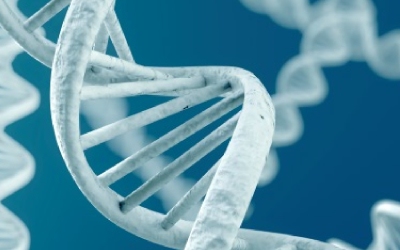A recent study has established a link between the gene which is responsible for ageing and a higher risk of blood cancer. The study provides a glimpse into the relationship between the genes and their effects on cancer risk, thus making it possible to develop better treatment options. Blood cancer, especially myeloma, is a condition that cannot be cured. So scientists are looking into the possibility of identifying the threat of blood cancer, so that preventive measures may be taken in time, by studying the genetic makeup of a high-risk patient.
What is Blood Cancer?
Blood cancer begins in the bone marrow where production of blood takes place. In most blood cancers, the normal development of the blood cell is interrupted by their abnormal and rapid growth. These abnormal cells do not let the blood perform its normal functions, such as preventing bleeding or fighting infections. Because of this, the body loses its resistance, thus leading to a weak immune system.
Myeloma, a common type of blood cancer, affects the plasma cells. These plasma cells are nothing but the white blood cells which are responsible for producing antibodies that fight diseases and infections in the body. Myeloma causes a weakened immune system that is susceptible to infections.
According to statistics, nearly 4,700 patients are affected by myeloma every year due to genetic mutations. 4 out of 10 patients live through the disease for more than 5 years whereas 3 in 10 die within a year.
New Findings
Scientists at The Institute of Cancer Research London found that the gene which is responsible for ageing has links with blood cancer development as well. Researchers concluded that the gene that is responsible for the internal clock of the cell is also 50% responsible for one of the most common types of blood cancer known as myeloma. However, researchers also suggested that it does not mean that the cancer is inevitable for those with this gene. This major study helps shed light on the genetic causes of blood cancer.
Scientists had previously identified 3 genetic variants responsible for myeloma. The new study identified some more, thus bringing the total to 7 genetic variants. The study not only helps to understand the genetic reasons of blood cancer, but will also help researchers develop appropriate treatments for the disease. Identifying the genetic makeup of blood cancer will also help physicians assess the risk and formulate treatment plans accordingly.
Cancer is nothing but the abnormal division of cells. To control this abnormal growth, our body has an innate system that keeps a check on cell division. But as human beings age, the body loses its ability to keep those checks up, thus making it more susceptible to developing cancer. Those with a specific genetic makeup may become more easy targets of cancer.
Myeloma is incurable and has devastating effects on the body; the new study helps identify people who are at high risk of inheriting myeloma, thus significantly reducing the chances of someone developing this cancer. However, researchers also warn that before undergoing genetic testing, patients should be given counseling so that they are able to able to cope with the results of the test.
The new study has truly been a breakthrough in the medical community because it gives a glimmer of hope in the treatment of myeloma which is otherwise incurable.
Author Bio:
Sameer Gupta is a medical writer who writes well-researched, in-depth cancer articles which provide relevant information to help patients combat the deadly disease.
